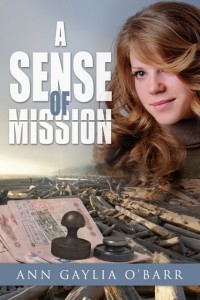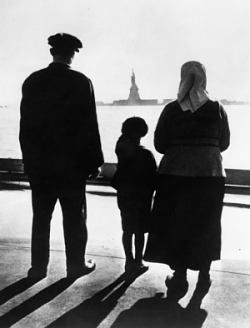In November, 1989, I was a planner for a regional commission in North Georgia. After years if dull jobs, I thought I had found my calling, work I enjoyed. I had laid aside my earlier dreams of finding an international job, one that would take me to other countries.
That autumn, I and most of the world watched, incredulous, as one Eastern European country after another threw off Soviet rule. The old longing returned. I wanted another job, somewhere in the middle of all those global changes. Silly daydreaming. No hope of that, of course.
A year later I prepared to leave for my job in Jeddah, Saudi Arabia, after finishing my orientation as a U.S. Foreign Service officer.
The year 1989 often appears in my novels, stamping the place of that momentous year for me and for the world. From A SENSE OF MISSION:
That fall the world changed.
From our peaceful island, as we stacked wood for winter, cooked apples into applesauce, and noted the sun rising ever further south, we watched the slow liberation movement that swept across Eastern Europe. We held our breath, for at first it looked to end as tragically as Tiananmen Square.
It did not. The prayed-for change materialized. The Berlin Wall fell without bloodshed. For good or for ill, Eastern Europe began meshing with the West.
This month, Germans celebrate the day the Wall fell, twenty-six years ago. This is the Germany that so many of those Middle Eastern, African, and Asian refugees defy death to reach today.


 I have difficulty pinpointing where the ideas for my stories come from. A Sense of Mission, my favorite, is the only one written in first person.
I have difficulty pinpointing where the ideas for my stories come from. A Sense of Mission, my favorite, is the only one written in first person. As a consular officer working for the U.S. State Department, I interviewed foreign nationals for both temporary visas and visas for permanent residence in the United States. Interviews for legal immigration were rewarding, often dealing with those who were elated at reaching their dream of living in the United States. These immigrants often had family who had immigrated to the United States before them. Others had earned their visas because their job skills were needed by an American employer.
As a consular officer working for the U.S. State Department, I interviewed foreign nationals for both temporary visas and visas for permanent residence in the United States. Interviews for legal immigration were rewarding, often dealing with those who were elated at reaching their dream of living in the United States. These immigrants often had family who had immigrated to the United States before them. Others had earned their visas because their job skills were needed by an American employer.